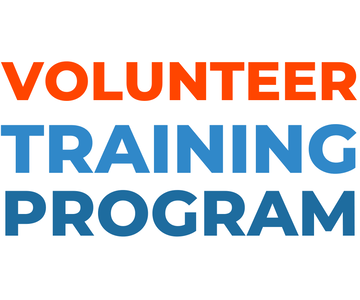
The Impact and Importance of Hospice Volunteers: Understanding the 5% Rule
The Impact and Importance of Hospice Volunteers: Understanding the 5% Rule
Hospice care plays a crucial role in providing comfort and
support to individuals nearing the end of their lives. Volunteers have been at
the heart of this movement since its inception in the United States. In order
to ensure that hospices continue to make effective use of volunteers, the
Medicare Hospice Conditions of Participation (CoPs) established a requirement
known as the "5% rule." According to this rule, at least 5% of the
total patient care hours provided by a Medicare-certified hospice must be
performed by volunteers who are not administrative or managerial staff.
The Importance of Volunteers in Hospice Care
Volunteers contribute significantly to the quality of care
provided to patients and families in hospice settings. They offer
companionship, emotional support, respite care, and assistance with activities
of daily living. Hospice volunteers generally serve in three areas:
- Direct support: Spending time with patients and families.
- Clinical support: Providing clerical and other services that support patient care and clinical services.
- General support: Engaging in activities such as fundraising, outreach and education, and serving on a board of directors.
Regulating Hospice Volunteer Programs
Hospice volunteer programs are regulated by several
entities, including Medicare Conditions of Participation, state regulations,
accrediting organizations, and agency policy and procedure. These regulations
ensure that volunteers are utilized effectively, meet all requirements
associated with their specialty area, and are properly documented.
Volunteer Roles and Responsibilities
Volunteers can serve in various roles, from providing
spiritual care to helping with household chores, shopping, transportation, and
companionship. However, there are certain tasks that volunteers cannot perform,
such as giving medication, giving food or drinks, assisting with moving or
ambulating, driving or transporting patients or caregivers, and engaging in
financial transactions.
Maintaining Professional Boundaries
It is crucial for volunteers to maintain professional
boundaries and adhere to the range of acceptable behavior. They should be
mindful of fostering dependence, managing their time appropriately, and
communicating effectively with patients, families, and the interdisciplinary
team.
Recruiting Volunteers
When recruiting volunteers, it is essential to discuss the
keys to a successful volunteer experience. Some critical factors include
genuineness, dependability, communication, listening, confidentiality, physical
contact, conflict management, and personal reactions. Addressing these aspects
helps both the potential volunteer and the agency determine if the role is a
good fit.
Post-Pandemic Recruiting Considerations
In the aftermath of the COVID-19 pandemic, it is important
to address the concerns and anxieties of potential volunteers. Topics to
discuss may include fears about entering certain dwellings, infection control
practices, considerations for immunocompromised volunteers, and health policies
required by the agency, state, or federal guidelines.
The 5% rule highlights the importance of volunteers in
hospice care and their contribution to enhancing the quality of care provided
to patients and families. By understanding the various roles and
responsibilities of volunteers, as well as recruiting and retaining them
effectively, hospices can ensure that they continue to play a vital role in
supporting patients and families during their end-of-life journey.
Ramp up your program to meet the 5% again!
Read These Articles Next
May 14, 2021
October 6, 2022
April 28, 2022
© 2026 FINANCIAL EDUCATION & DEVELOPMENT, INC






